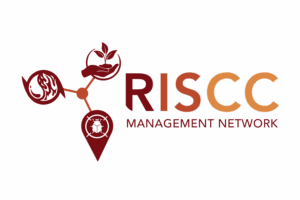Update: National Invasive Species and Climate Change (NISCC) Network
2022: Where it all Began
Climate change is challenging how we consider invasive species in Canada as novel non-native species become invasive and native species shift their ranges north into new ecosystems. They also interact to produce synergistic effects that are worse than their independent impacts: climate change can make ecosystems more vulnerable to invasive species, and invasive species can worsen the impacts of climate change. Amidst these challenges, there is a growing need for guidance on how to manage invasive species under future climate scenarios. Although more research is being done investigating the influence climate change has on the spread, impacts and management of invasive species, there is still an information divide between researchers and the managers working on the ground.
 To increase collaboration and help bridge this gap, the Canadian Council on Invasive Species (CCIS) and the Invasive Species Council of British Columbia (ISCBC) hosted the first National Invasive Species and Climate Change symposium in June of 2022. The virtual conference brought together policymakers, researchers, and practitioners from across three countries to examine the interactions of invasive species and climate change, and discuss strategies to address this threat. Sixteen speakers from government, industry, academia, non-government, and Indigenous organizations delivered inspiring and informative presentations across the 2-day symposium. Topics included risks of climate change on increasing the impacts and spread of invasive terrestrial/aquatic species, implications of a warming climate on invasive species management, as well as, combining traditional and Western knowledge on managing synergistic threats of invasive species and climate change.
To increase collaboration and help bridge this gap, the Canadian Council on Invasive Species (CCIS) and the Invasive Species Council of British Columbia (ISCBC) hosted the first National Invasive Species and Climate Change symposium in June of 2022. The virtual conference brought together policymakers, researchers, and practitioners from across three countries to examine the interactions of invasive species and climate change, and discuss strategies to address this threat. Sixteen speakers from government, industry, academia, non-government, and Indigenous organizations delivered inspiring and informative presentations across the 2-day symposium. Topics included risks of climate change on increasing the impacts and spread of invasive terrestrial/aquatic species, implications of a warming climate on invasive species management, as well as, combining traditional and Western knowledge on managing synergistic threats of invasive species and climate change.
2024: Where we are Now
One of the major outcomes of the symposium was determining Canada’s next step to address this threat by developing a collaborative multi-sector network, similar to and in collaboration with the Regional Invasive Species and Climate Change (RISCC) Network in the United States. Through a workshop following the symposium, objectives and a path forward were identified, and it was agreed that CCIS would lead the newly founded National Invasive Species and Climate Change (NISCC) Network. As a member of the Regional Invasive Species Climate Change (RISCC) Network, NISCC has been developed collaboratively with our partners in the United States. As a knowledge-sharing network, NISCC’s mission is to reduce the joint effects of climate change and invasive species by bridging the research-management divide. NISCC will work to synthesize relevant science, share the needs and knowledge of managers and policy makers with researchers, build stronger scientist-manager-policymaker communities, and identify priority research.
threat by developing a collaborative multi-sector network, similar to and in collaboration with the Regional Invasive Species and Climate Change (RISCC) Network in the United States. Through a workshop following the symposium, objectives and a path forward were identified, and it was agreed that CCIS would lead the newly founded National Invasive Species and Climate Change (NISCC) Network. As a member of the Regional Invasive Species Climate Change (RISCC) Network, NISCC has been developed collaboratively with our partners in the United States. As a knowledge-sharing network, NISCC’s mission is to reduce the joint effects of climate change and invasive species by bridging the research-management divide. NISCC will work to synthesize relevant science, share the needs and knowledge of managers and policy makers with researchers, build stronger scientist-manager-policymaker communities, and identify priority research.
CCIS continues to work closely with partners to develop NISCC; compiling research paper summaries; working on a new dedicated NISCC website; creating a NISCC logo; and recruiting the National Advisory Group. The advisory group will guide the network towards its goal of reducing the synergistic impacts of climate change and invasive species. Coming soon, NISCC will have a webpage with more information and knowledge-sharing, but until then you can find more details at canadainvasives.ca/invasive-species-and-climate-change. Or check out www.risccnetwork.org to learn about the Regional Invasive Species and Climate Change networks.